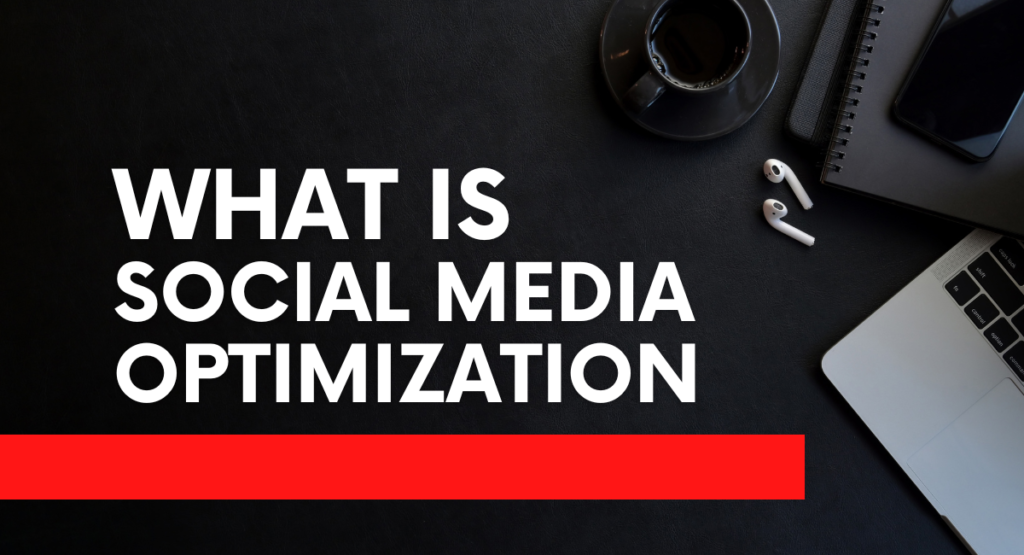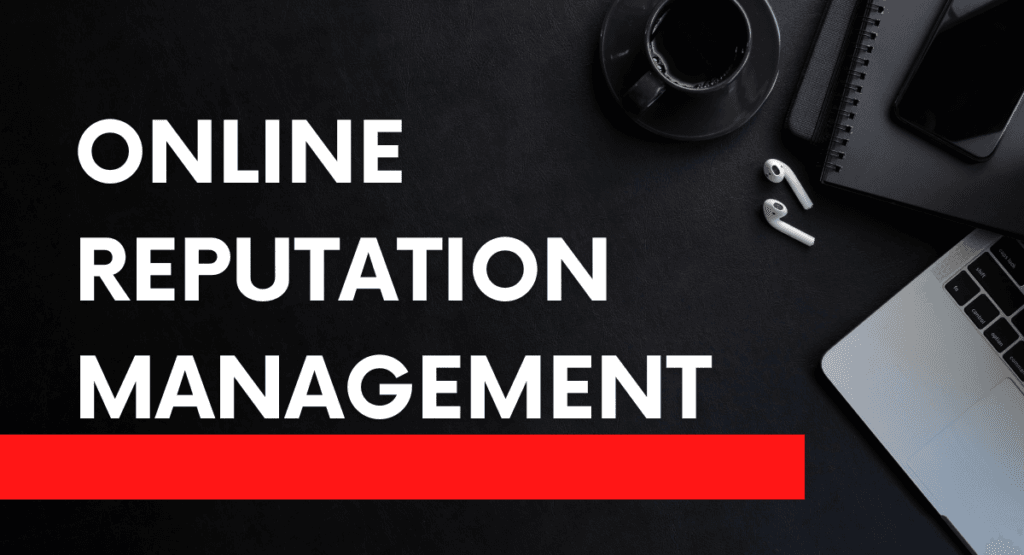Introduction
Probably the most effective way to communicate with customers through texts on their cell. Helps in sending in, promotions, updates, offers to its customers. The demand of businesses in this dynamic digital world continues to be crucial: SMS marketing cuts through clutter and reaches audiences fast directly by giving brands immediate, measurable results.
Brief overview of SMS marketing
SMS marketing is the process of sending promotional messages or alerts directly to the customer’s telephone through the services of short messaging. Indeed, it has been proven to be one of the most efficient avenues for real-time communication since it would enable businesses to involve their customers in ways that could be highly creative for them. The benefit that SMS marketing offers -an open rate, plus more importantly, direct delivery to the intended recipient-is quite high and is typified by mobile-centric marketing strategies in the current channel mix. For that matter, it can also bring about brand awareness and conversion through personalized messages with targeting capabilities.
Importance of SMS marketing in the digital landscape
Its engagement rate is much higher than any other kind of digital marketing strategy. What can be more personal than being permanently present on a person’s mobile device? SMS applied for connecting businesses with audiences using elements of speed and intimacy that other kinds of digital marketing cannot offer. It allows for the integration of other methods of digital marketing by creating a direct communication channel and is a phase that must be seen as essential in developing customer relations to ensure that it can obtain responses even faster.
Understanding SMS Marketing
What is SMS Marketing?
SMS marketing is the messaging or alerting of a target audience on mobile phones by text. It’s direct and instant and personal communication that one can use to remind a person or offer something in good time for promoting a product. SMS marketing has very high open rates, and this is a means to drive prompt action to enhance reach in marketing, that brands can use.
- Definition and key components
SMS marketing requires the sending of specific promotional text, alert, or update texts to an opted-in list via SMS. The essential factors include personalized texts, opt-in and opt-out, adhering to laws and provisions, as well as analytics on success metrics. Compared to other marketing channels, SMS offers the immediacy of information delivery, as well as highly engaging due to its short nature and instant linkage to the mobile handset of the recipient.
- Differentiation from other marketing channels
The main differences from other channels like, say, email or social media are that the engagements and response rates can happen almost instantaneously-that is to say, how days may go by between an email being opened or lost in a sea of updates on social media. SMS directly reaches customers through their mobile phones and rarely misses its target: an impressive open rate of 98%. It is good for urgent or time-sensitive communications as it is extremely concise and to the point.
The Benefits of SMS Marketing
There are several advantages of SMS marketing, including a great opening rate, fast delivery with a personal touch to the customers. Targeted, time-sensitive offers would certainly prove engaging and increase the chances of converting them into customers. Brevity bows to digestibility, and thus SMS marketing has efficient customer interaction. Nor is it too expensive, and it fits very well with other marketing strategies-it’s comprehensive and holistic in its approach to the contact of customers.
- High open and engagement rates
A description of SMS marketing is that the opening rate is reportedly one of the highest with all channels. In fact, very impressively, 90% of recipients opened it within three minutes from the moment it was sent; this instant opening allows businesses to reach their audience and also expect quick responses. It cannot be compared with channels like emailing or social media as they don’t offer anything much better, a more reliable means of viewing the message for a customer.
- Immediate delivery and response times
Nothing else comes close to this degree of power in SMS marketing: Messages are delivered real-time, and most texts are opened within minutes of receipt. The speed it allows will ensure immediate communication with your customers. This is very helpful if a brand wants to send time-sensitive offers or updates. Furthermore, the fast responses accompanying SMS let brands have immediate interactions, which maximize their engagement and amplify their conversion rate.
- Cost-effectiveness compared to traditional advertising
The cost-effectiveness advantage of SMS marketing compared to traditional media such as television, radio, and print is very low investment as it can reach the clients directly, often at a much more engaging level. With SMS, one can reach thousands of people quick, and at a very low cost. Of course, much more than that is the fact that an SMS, by nature, is a short message, and hence, your message will be read and digested in a blink.
How SMS Marketing Works
SMS marketing is built on short, focused messages to customers’ cell phones for purposes of promotion, update, or notice. Organizations want information to be delivered upon time, keep their subscribers in a conversation, and inform them of offers. Open rates are often above 90%, and with SMS, you are sure that a message has been read and followed on immediately. SMS marketing accomplishes many objectives due to the simplicity, directness, and ability of messages to be personalized through text.
The SMS Marketing Process
SMS marketing involves strategic steps in its process, through which the firm may reach the customers through text messages. It encompasses stages like the building up of subscriber lists, sourcing and developing an SMS platform, creation of short compelling messages, and scheduling the sending of those messages. After sending the messages, they calculate open rates and conversions to perfect the future campaigns. Anyhow, this will be one-to-one communication and engagement. The heart of SMS marketing is an ideal list of subscribers. Most businesses will persuade customers to opt-in through any engaging websites, social media campaigns, or in-store promotions or offers. With their consent, companies can send legal marketing messages.
- Step 1: Building a subscriber list
The subscribers list should be relevant and pertinent to the interest of users. Thus, when the campaigns are launched, they would reach the correct audience, and thereby the probability of conversion into sales or other desired actions could be more.
- Step 2: Choosing the right SMS marketing platform
First, you should select the best SMS marketing platform that will assist you in having a successful campaign. Some of the platforms you use include Twilio, EZ Texting, and SlickText so as to ensure user-friendly scheduling, segmentation, and analytics tools on an SMS campaign. Among its features include personalization, automation, and compliance in regulations. You, therefore must choose the most perfect platform which will fit your business needs to ensure smooth delivery, tracking engagement, and scaling up your SMS marketing effort.
- Step 3: Crafting effective messages
The best SMS is simple and short with a call to action. More directly, taking into consideration the 160 character limit, this is the time to say it precisely just to keep the recipient interested. Value propositions including discounts or special offers add potency to the effectiveness of SMS. The right message catches a regard and prompts the receiver to take action immediately.
- Step 4: Scheduling and sending messages
Sending the most relevant message at the right time yielded the maximum engagement. Businesses can schedule SMS campaigns at times when their customers are likely to respond, such as business hours or an event where promotional activities are being conducted. There is an automated delivery; in this case, the marketer sends messages at the right time without human interference such that the communication will take place at the right time. High open rates and conversion mainly come from the relevance of both relevance and the right timing.
- Step 5: Analyzing performance metrics
The performance metrics of analysis make it more efficient to run SMS marketing campaigns and more effective to do so. Examples include open rates, click-through rates, conversion rates, and opt-out rates. These indicate the effectiveness of the campaign while providing an understanding of how a campaign may be improved upon. Observing that data may outline ways in which engagement may be increased: the time at which messages are sent out may be improved, and content may need to be changed for more effective engagement. Continued analysis guarantees that SMS marketing will remain an effective, data-driven communication channel.
Types of SMS Marketing Messages
It allows different kinds of messages to meet the various requirements of the business. Promotionals are mainly the messages that mention some kind of offer or reduction. Transactionals include those related to the delivery and shipping of the order. Some customer service alerts always remind customers of the issue or delay. Reminder or notification may be reminding of a scheduled appointment or payment, etc. And each is required to keep people interested and in action.
- Promotional messages
The promotional messages to the subscriber come in a discount or offer and deal. These seem to create urgency, encouraging engagement and finally sales generation. Targeted promotions to mobile phones make way for businesses to rapidly increase the visibility of a product or service and to convert instantly through action.
- Transactional messages
All transactional messages are full of highly informative data associated with a customer’s transactions, such as confirming the order, shipping updates, or simply payment receipt. These serve as reminders of how long it takes before delivery is received, and orders are processed. Being very relevant and personable, most transactional SMSes have very high open and engagement rates and thus win the confidence of the customers.
- Customer service alerts
Customer service alerts are the text messages to the client on some form of service interruption, appointment, and other forms of notice from the account. It can be timely communication so that the customer is aware of everything and does not get confused or frustrated with the situation. Good customer service alerts bring in trust and overall satisfaction through proactive solutions to problems with very clear updates.
- Reminders and notifications
Primarily as a gentle reminder, reminders and notifications within SMS marketing remind consumers to attend an event, visit a store, or refer to a time-limited offer. Businesses use them for reducing missed appointments or making money before offers expire. Such timely messages keep customers engaged and prompt them to take action-mostly, about confirming whether they are attending or buying something before it expires.
Best Practices for SMS Marketing
Some of the best practices for SMS marketing include clarity on opt-in, proper timing, and clear opt-out. Any message must be concise yet meaningful and personal enough to reach and keep them interested. They should not have overloads of too many texts and are, therefore, bound to comply with regulations which lead to things such as TCPA compliance. Only analysis based on the performance of a regular ground can bring improvement that will help a campaign result in an even better outcome and customer satisfaction.
Compliance and Regulations
Comprising laws in SMS marketing would not incur any penalties and uphold the reputation of the brand as far as trust is concerned. Some of these laws include the Telephone Consumer Protection Act (TCPA) that spells out some details on how a business or an organization may collect phone numbers, send messages, and how they can handle opt-outs. Non-compliance with these laws inures heavy fines and damaging brands. Conforming to the law therefore means SMS campaigns remain both effective and legally sound.
- Understanding the Telephone Consumer Protection Act (TCPA)
So, TCPA regulates SMS marketing practice. Of course, foremost it requires that there must be consent of enterprises for their marketing text messages. Furthermore, there should also be an opt out mechanism in place and also be restrictive regarding how many messages will actually reach to a cell phone. Failure to comply can mean really hefty fines.
- Importance of opt-in and opt-out processes
Opt-in and opt-out are the most important two processes in SMS marketing, which are law-abiding but meet the needs of a customer as well. Opt-in ensures all the recipients have agreed to receive messages in any way. Opt-out provides them with the facility to stop receiving texts. A properly articulated opt-out process will sustain trust, reduce spam complaints, and even comply with provisions like TCPA.
Crafting Effective SMS Content
A message should tell the central idea in few words and words without leaving the interest of the recipient. The content of the message must have a good call-to-action and must be sure that it correlates with the needs of the recipient. It must be friendly, jargon-free, and value-giving, like discounts, alerts, or reminders, which would garner instant responses.
- Tips for writing concise and engaging messages
More effective strategies for persuasive concise writing Short Messaging Service Messages Use action -oriented writing that encourages a faster response. Set the text of the message below 160 characters so that ostensibly it appears concise and easily understandable. For example, The best discount offer on Pizzas Send to your husband/ boyfriend salutation by name Direct benefit or special offer right away – instantly will capture their attention Do not forget to simply and specifically state the CTA with step-by-step guides next for users.
- Personalization techniques
SMS marketing personalization refers to the changing of the messages according to the receivers. There are various ways of doing it, from use of a receiver’s name, location, purchase history, or behavior. It means the content will be relevant and targeted. Audiences can be further branched into demographics or preferences for acquiring stronger personalization. This will finally develop healthier relationships between customers and bring in a better engagement and conversion rate since the message will be more personal rather than general.
- Timing and frequency of messages
Timing message dispatch also plays an important role: it should occur at peak hours say working hours, or even a little while before the sale ended thus allowing for more possible response rates. Sending too frequent messages makes customer fatigue and eventually opt out. Relevance and timing ensure that an SMS does not overwhelm the recipient while bringing out a higher response rate.
Measuring SMS Marketing Success
The success measures of SMS marketing are delivery rates, open rates, CTR, and conversion rates. This is what will present in front of you on how well the message is received by your target audience. Then, keep an eye on the opt-out rates so that such frequency repetition and type of same frequency and content of messages do not disengage your audiences from your campaigns, thus adjust strategies in favor of better results.
- Key performance indicators (KPIs) to track
Some of the most common performance indicators of SMS marketing include delivery rate percentage of messages that have been delivered, open rate-the number of recipients who opened the message, click-through rate (CTR) for any links in messages clicked, conversion rate for the actions from the message and opt-out rate.Tracking these metrics help track the effectiveness of the campaigns and helps you tune in to enhance engagement and conversion.
- Tools for analyzing SMS campaign performance
These are some analytics tools to measure your performance in SMS campaigns. Twilio, EZ Texting, and SMS Bump offer analytics features also, through which marketers can know the open rates, click-through rates, and conversions of the texts that went out. Google Analytics could also be integrated to monitor traffic coming from SMS campaigns. All these enable marketers to understand the way their customers behave and subsequently what kind of effectiveness their campaigns bring so as to optimize based on data.
Case Studies and Examples
Case studies of the success stories of the SMS marketing campaign are examples of what business houses can do through the channel to reach customers. Examples include how the retail brands would come along flashing sales via SMS messages, and the receivers would buy immediately. Restaurants by sending an SMS will feature short-term offers and drive increased reservations. Case studies from these analyses offer lessons on creating urgency, personalizing, and timing to drive conversions.
Successful SMS Marketing Campaigns
A successful text message campaign is short and focused in scope at the point in time. Ecommerce companies use flash sales alerts through SMS to drive instant sales. Retailers can refer a loyalty program as a tactic of segmented targeting with personalized discount codes for customers. Of all the examples cited, it highlights the factor of urgency mixed with personalization as enough to make the customers succumb and enter into revenue growth in millions.
- Examples from different industries
It differs with various fields of application since it is used in different ways in different industries. In the retail industry, the brand will send some promotional offers and flash sales in order to force it making fast purchases. Restaurants use sms for reminders of reservations as well as exclusive deals while health care providers use it in sending reminders concerning appointments. All these examples illustrate the broad use of SMS marketing in various sectors and how this can be managed based on the specific needs of its target as well as objectives.
- Lessons learned from successful implementations
Campaigns through SMS open the doors to personalization, time-of-delivery, and crystal-clear CTAs. Marketers have recently learned a general lesson that if the content is clearer and more concise, it has to be all the more relevant-at the right time-for maximum engagement and conversion. One slogan for urgency, which is the limited-time or flash sale offer, ensures a customer acts.
Conclusion
This leaves one with the takeaways of respecting user time at the same time sending value to assure longevity. It is highly effective for businesses seeking a direct and personal connection to their audience. High open rates and instant delivery make SMS messages reach the customer instantly, thus ensuring that their offers, updates, or promotions reach them perfectly and on time. It allows for the personalization of customer relationships while driving through conversion via targeted messaging. Especially when in concert with other marketing activities, SMS can really amplify the effectiveness of a campaign and increase engagement-all of which should result in better retention levels. Of course, this can only be done with relevance of the message delivered, brevity and not intrusion-thus, an approach may easily get people hostile because they dislike the immense messaging done.On the whole, SMS marketing stands as one of the valuable and impactful channels if judiciously used
FAQ’s
Are there any legal requirements for SMS marketing?
Of these legislations are the Telephone Consumer Protection Act for United States of America. It asks receivers to agree and gives an option to opt out. If I do not comply then, then some penalties will be imposed based on the jurisdiction.
How can I measure the ROI of my SMS marketing campaigns?
If one knows the ROI, it means they have to monitor many factors such as conversion rates, click-through rates, customer engagement and sales brought into an SMS campaign. Such analytical tools would state whether a campaign is effective or not and how to improve strategies for future use.
What are the best tools for managing SMS marketing?
Among the popular management tools are Twilio, SimpleTexting, and EZ Texting. They offer autofeatures, segmentation, campaign scheduling, and analytics that make management of the campaigns run all the smoother.
Can SMS marketing be integrated with other marketing strategies?
Yes, SMS marketing can positively augment other channels such as email marketing, social media, and loyalty campaigns. It enhances multi-channel initiatives by giving timely and direct information, elevates engagement, and adds conversion in channels.






